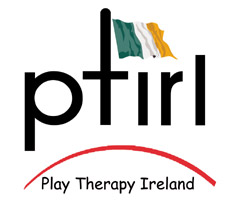Play Therapy uses a variety of play and creative arts techniques (the ‘Play Therapy Tool-Kit’ to alleviate chronic, mild and moderate psychological and emotional conditions in children that are causing behavioural problems and/or are preventing children from realising their potential.
The Play Therapist works integratively using a wide range of play and creative arts techniques, mostly responding to the child’s wishes. This distinguishes the Play Therapist from more specialised therapists (Art, Music, Drama etc). The greater depth of skills and experience distinguishes the play therapist from those using therapeutic play skills. In order to become a PTIrl Certified Play Therapist a minimum of 200 hours of supervised clinical work is required whilst in training. A total of 450 hours are required to become a PTIrl Accredited Play Therapist.
The Play Therapist forms a short to medium term therapeutic relationship and often works systemically taking into account and perhaps dealing with the social environment of the clients (peers, siblings, family, school etc). Clinical supervision is essential.
Play therapy may be non-directive (where the child decides what to do in a session, within safe boundaries – see Axline’s rules), directive (where the therapist leads the way) or a mixture of the two. Play therapy is particularly effective with children who cannot, or do not want to talk about their problems.

